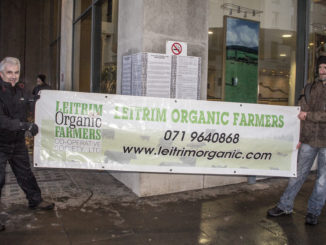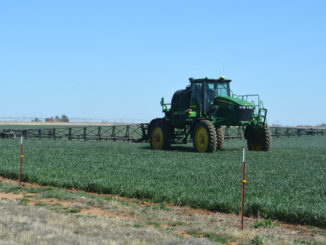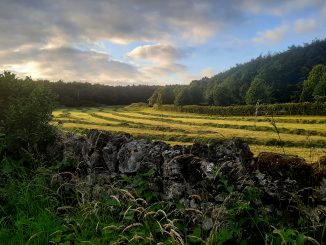
Our Mazi farmer, Natasha Foote, joined the first International Meeting For Living Agriculture in Paris. It aims to forward agroecological transition by facilitating exchanges between people working in this field in diverse ways, in different areas and on all sorts of scales. Here is what she took back to the farm.
Living and working on a farm like Mazi, it’s easy sometimes to feel a bit isolated. As beautiful as it is, as passionate as you are about what you’re doing, being a pioneer can be an isolating experience. You have to face the challenges of innovative systems like syntropic farming, which we practice, alone. It’s easy to feel a bit disheartened.
That’s why outreach work and networks of farmers can be such a life-line. Many farmers, like us, are rural and remote and such networks create a vital space for knowledge exchange and social connection with similar projects and people. Most of this at Mazi we do online, connecting with the many social media sites, organisations and forums, but this has it’s limits. Sometimes it’s nice, or even necessary, to have a change of scene and to actually meet people in person.
It was with that in mind that I decided to attend the first ever International Meeting for Living Agriculture. Organised by the French organisation, the aptly named Ver de Terre Production (‘Earthworm’ Productions), in conjunction with the movement Pour une Agriculture du Vivant (‘For a living agriculture’), this conference was designed to support the agroecological transition and to connect like-minded people working in different ways and at different levels to practise and promote agroecological practices.
So, in the hope to re-inspire myself, discover and connect with the whole wealth of interesting projects, people and ideas that I know are out there, I took myself off to Paris this February and arrived at the beautiful Cité Internationale Universitaire de Paris excited to see what the conference had in store for me.
It certainly did not disappoint. Offering 5 days of presentations, from farms of 5 hectares to 5000, from farmers to policy makers, from South Africa to Canada, this conference provided a rare opportunity for inter-disciplinary,as well as international exchange. Jam packed full of speakers ranging from researchers from institutions such as the FAO and INRA, including the incontestable pioneers of living soil science in France, the Bourguignons, to technical presentations from farmers working to perfect their methods of no-till, direct seeding and pruning, each speaker brought fresh perspectives and inspiring ideas.
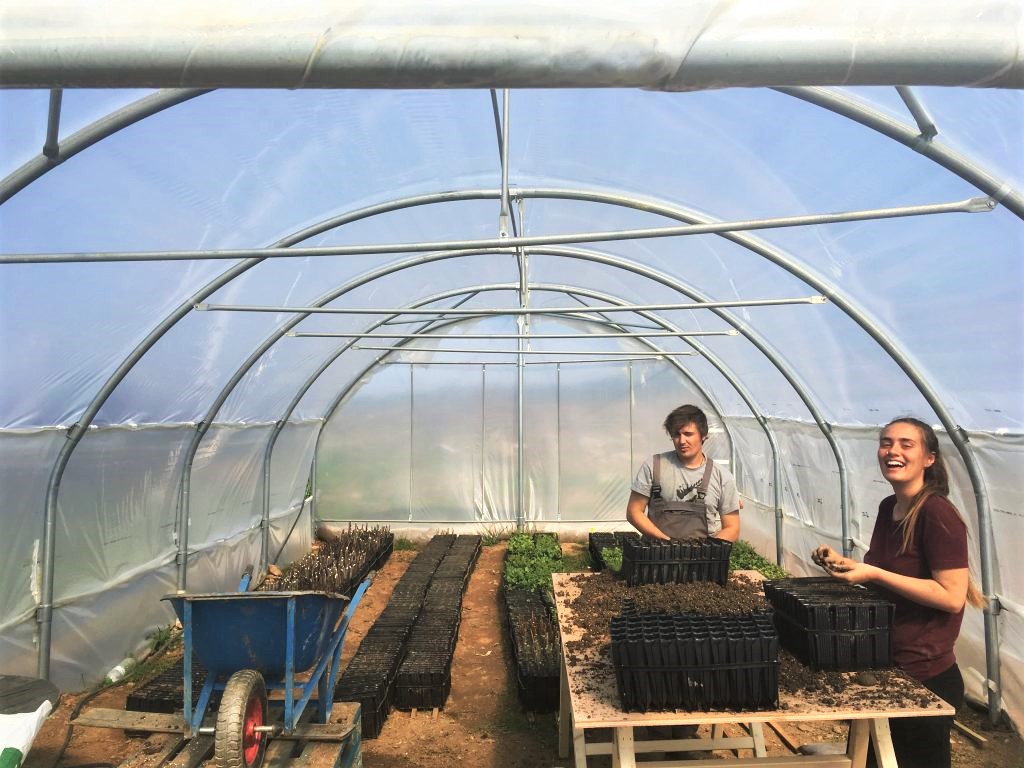
Often, working on a project like Mazi means that you have multiple roles and interests. For instance, working as an agroecological farmer means you are not just a farmer, but also a researcher, an innovator and an ecologist. What I liked most about this conference was that it appealed to many sides of the work I do and am interested in.
As a farmer…
…the conference’s emphasis on technical agronomic knowledge was indispensable. Notable stand outs include ‘paysan-chercheurs’ (farmer-researchers) such as Felix Noblia, who managed within the space of 10 years to transform his conventional farm into a 100% organic, no-till, productive and economically viable farm.
Other innovative farmers included François Mulet, founder of Maraîchage sur Sol Vivant, a French organisation that works to support vegetable farmers using no-till methods, and Benoît Noël, who has worked to maximise his profit through, for example, using his hedgerows to generate additional value and helping him produce more with less. Often, having precise and technical information can be difficult to access as a farmer, and such technical and practical presentations allowed such a valuable insight into their work.
As a researcher and scientist…
…this conference provided a rare opportunity to bridge the world of research and that of farming. It was a space to bring about practical and useful partnerships. At Mazi, we have been working on finding ways to measure and evaluate our soil quality, something we consider vital to the agroecological movement but which in practice has been time-consuming to research and difficult to standardise to allow comparisons between farms.
It turns out there is already an organisation in France trying out just that. Indiciades have been working on creating an accessible platform to support farmers in measuring, tracking and comparing progress. This conference has allowed me to link with this organisation in the hopes of using their knowledge and resources to help show how our practices are improving our soil health.
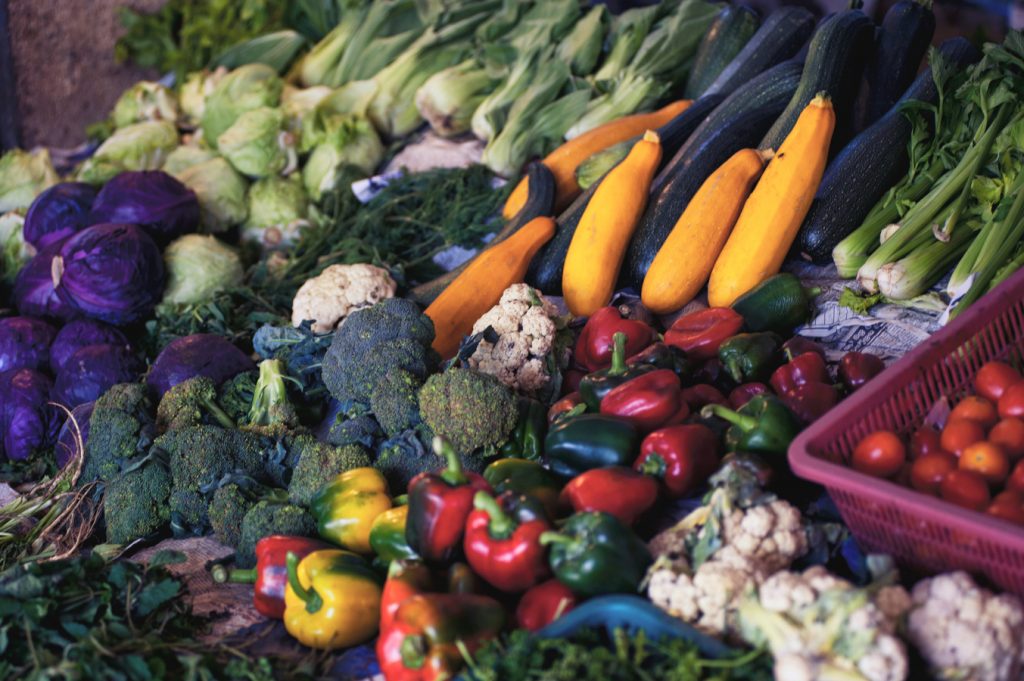
I am interested in the ways we can encourage people to engage with food quality and to create a way agroecological farmers can quantify the superior quality of their produce. Inspiration came from Dan Kettridge, founder of the Bionutrient Food Association, an organisation working to create a hand-held, pocket sized device that would allow the either the farmer or the consumer to directly test and quantify the quality of their food. This is exactly the kind of organisation that projects such as Mazi would love to support and work with, and it is really exciting to know that someone is working on this crucially important aspect of ecological farming.
Finally, as someone interested the transition from conventional farming to agroecological practices, a stand out moment of the conference for me was when Trey Hill, an American farmer, stood up on stage and started his talk with a beautifully made video about his farm. Cue beautiful shots of green fields, of the technology he uses to implement his no-till and direct seed agriculture- but with one difference; this video was created by Bayer, the agrotech company, as part of their ‘Future Farming’ project. Safe to say, this caused a stir in the room. What on earth was someone that worked with companies like Bayer doing at an organic, agroecological conference?
Trey went on to explain that he had taken the decision to convert his conventionally farmed 5000 hectare farm of soya and corn crops into a 100% no-till production, using cover-cropping as well as planting strips of wildlfowers to encourage healthy biodiversity. He explained that he works with actors such as Bayer as well as environmental organisations across America to promote the work he is doing, and although he was not organic, he was interested in incorporating agroecological principles and practices into his farm. His farm and his story represented to me the missing link in the transition between conventional and agroecological farms, and ways that we must come together to work with farmers and people if we want to forward the agroecological transition.

As well as re-instating the importance of life and biology as the basis for agriculture, this conference, thanks to it’s diverse range of speakers, offered a number of other take home messages. It highlighted to me the importance of creating moments of exchange like this to encourage interdisciplinary and international collaborations which are key for accelerating the agricultural transition. This includes work between conventional and organic agriculture and between research institutes and farmers. These are unfortunately still rare.
It also emphasised the importance of creating accessible, high quality information, including how to accurately measure progress and collate this information together, to forward the agroecological movement. Lastly, conferences like this offer a boost of inspiration, reinvigoration of interests, exchange of ideas and connection of like-minded people that everyone needs from time to time.
More from Mazi…
Letter From The Farm | Mimicking Natural Processes in Greece
Letter from the Farm | Spring Update from Greece’s Mazi Farm



